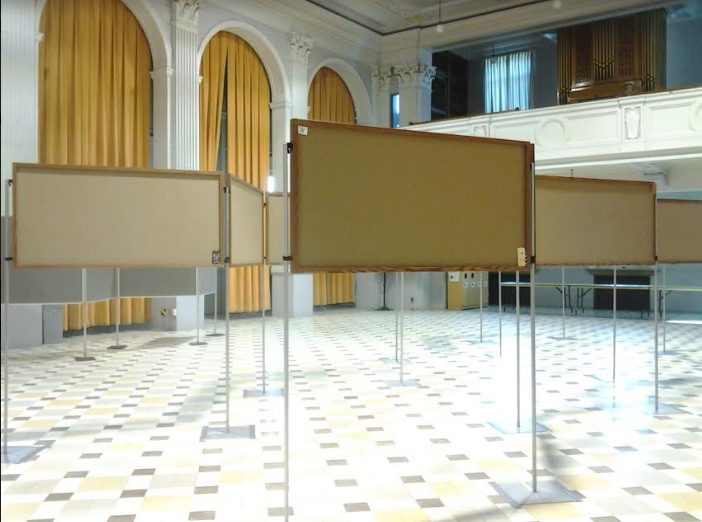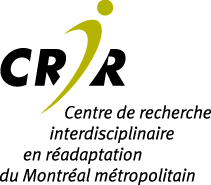
Conference Schedule
[Location is Tabaret Hall. Room: Hall Hugette Labelle 112]
[This schedule is available as a public Google calendar, under the name 'Mental Lexicon 2016'. The iCal link is here. You can download the schedule as a .pdf file here. ]
Eve of Conference: Tuesday, October 18th, 2016
Opening Reception and Registration
[Alex Trebek Aliumni Hall. Room: Johnson Hall 116] 19:00 – 22:00
Day 1: Wednesday, October 19th, 2016
7:45 - 8:15 Coffee / Registration
8:15 - 8:50 Welcome
Opening: Dr. Kevin Kee, Dean of Arts, University of Ottawa
Platform Session 1.1 (Chair: Eva Kehayia) 8:50 – 9:30
8:50 – 9:10 1 Swetlana Schuster and Aditi Lahiri. Deep Morphology: Processing of German Complex Nouns
9:10 – 9:30 2 Lien Van Abbenyen, Ken Forster and Dominiek Sandra. Without a trace. Masked Priming Effects in a Lexical Decision Task are not Mediated by an Episodic Memory Trace of the Prime
Poster Session* P.1 and Refreshments 9:30 – 11:00
1. Magomedova. Gender assignment in Russian as a competition of phonotactic and lexical generalizations
2. Juliet Huynh and Naoko Witzel. Activating meaning (in)directly from L2 words: Evidence from early and late bilinguals
3. Katharina Korecky-Kröll, Eva Freiberger, Wolfgang U. Dressler and Basilio Calderone. Acquiring and Processing German Words of Different (Mor)phonotactic Structure: Morpheme Boundaries inside Consonant Clusters Delay Processing, but not Acquisition
4. Peter Hendrix, Michael Ramscar and Harald Baayen. The NDRa: a single route discriminative learning model of reading aloud
5. Daniela Wong Gonzalez and Lori Buchanan. Semantic effects in newly encoded word associations
6. Nayoung Kim and Kiel Christianson. The Role of Phonological Subsyllabic Units in Korean Word Identification
7. Samantha Wray. Affix productivity and morpheme frequency in lexical access
8. David Beard. Orthographic and Phonological Effects in Cognate Recognition: Looking into Individual Differences and the L2 Learner
9. Simon De Deyne, Dan Navarro, Amy Perfors and Gert Storms. Emotion and imagery assortativity in the mental lexicon
10. Antoine Tremblay, Graham Flick, Ariel Blanchard, Estelle Cochingyan, Kayla Dickie, Kailtyn Macgillivray, Hayam Ashraf Mahmoud-Ahmed, Sarah Schwartz, Caleb Sher, Elissa Asp & Aaron J. Newman. Free, Unscripted Conversation with MEG Recordings is a Viable Experimental Paradigm for Research into Language Processing
11. Shiloh Drake. Root-and-Pattern Morphology in the Lexicon: Evidence from Wug Tasks
12. Annie C. Gilbert, Maxime Cousineau-Pérusse and Debra Titone. Are Bilinguals More "Risk-Averse" in their Scope of Planning During Second vs. First Language Production?
13. Sandra Kotzor, Kai Alter, Beinan Zhou and Aditi Lahiri. Place and height mismatch in vowels: evidence from an MMN study
14. Barbara Penolazzi, Antonella Bergonzoni and Sara Mondini. Comparative effectiveness of different protocols of transcranial electrical stimulation (tES) for patients with post-stroke non-fluent aphasia
15. Martijn Bentum, Mirjam Ernestus, Louis Bosch Ten and Antal Bosch van den. Word predictability differences in speech registers of Dutch
16. Sara Farshchi, Carita Paradis and Richard Andersson. Narrow and broad functions of negation in a miniature artificial language
*Posters sessions are split in half if you are an even number we ask that you present your poster in the first 45 minutes of the session and if you are assigned an odd number we ask that you present in the last 45 minutes of the session.
Platform Session 1.2 (Chair: Mirjam Ernestus) 11:00 – 12:00
11:00 – 11:20 4 Félix Desmeules-Trudel, Charlotte Moore and Tania Zamuner. Boat or bone? Children’s sensitivity to coarticulation during spoken word recognition
11:20 – 11:40 5 Vincent Porretta, Yoichi Mukai and Benjamin V. Tucker. What big eyes you have: Pupillary response to reduced speech
11:40 – 12:00 6 Hideko Teruya and Vsevolod Kapatsinski. Statistical learning of phonotactics vs. lexical knowledge: Why we should all say 'idear' and why we do not
Lunch Break 12:00 – 13:30
12:15 – 13:15 Student/Postdoc Lunch & Learn / Networking Event
Tenth Anniversary Perspectives: Gonia Jarema and Gary Libben 13:30 – 14:00
Platform Session 1.3 (Chair: Emmanuel Keuleers) 14:00 – 15:20
14:00 – 14:20 7 David Townsend. Event Cognition, the Mental Lexicon and Sentence Comprehension
14:20 – 14:40 8 Debra Titone, Shannon Riley, Kyle Lovseth and Signy Sheldon. Teaching an Adult Dog New Tricks: Eye Movement Measures of "Invented Idiom" Processing Reflect Frequency, Meaning Dominance, & Compositionality During Training
14:40 – 15:00 9 Maria Piñango, Yao-Ying Lai, Emily Foster-Hanson, Cheryl Lacadie, Todd Constable and Ashwini Deo. Neurocognitive Properties of for-adverb and the Lexicon-Context Interface
15:00 – 15:20 10 Patrick Kelley, Drew Trotter, Karthik Durvasula, Matthew Whelpton, Joan Maling and Alan Beretta. Mass-Count Coercion in Icelandic: An ERP Study
Break 15:20-15:40
Platform Session 1.4 (Chair: Sally Andrews) 15:40-16:40
15:40 – 16:00 11 Kaidi Lõo, Juhani Järvikivi, Jacolien van Rij and Harald Baayen. Subject Group Variation in Lexical Processing: a Pupillometry Study
16:00 – 16:20 12 Daniel Schmidtke and Victor Kuperman. Surviving meaningless decomposition: a non-parametric view of the time-course of complex word recognition
16:20 – 16:40 13 Paweł Mandera, Emmanuel Keuleers and Marc Brysbaert. Changes in the word frequency effect as a function of language exposure
Day 2: Thursday, October 20th, 2016
8:00 – 8:30 Coffee
Platform Session 2.1 (Chair: Christina Gagné) 8:30 – 9:30
8:30 – 8:50 14 Naomi Caselli, Zed Sevcikova Sehyr, Ariel Cohen-Goldberg and Karen Emmorey. An investigation of the American Sign Language lexicon
8:50 – 9:10 15 Benjamin V. Tucker and Daniel Brenner. Massive Auditory Lexical Decision: Going Big in the Auditory Domain
9:10 – 9:30 16 Louis ten Bosch, Lou Boves and Mirjam Ernestus. DIANA: a new computational model of spoken word comprehension
Poster Session* P.2 and Refreshments 9:30 – 11:00
1. Sadaf Rahmanian and Victor Kuperman. The Price of Spelling Mistakes
2. Martín Fuchs, Ashwini Deo and María Mercedes Piñango. On the role of Context in Language Variation: the case of the Spanish PROG to IMPF shift
3. Vedran Dronjic and Rena Helms-Park. Second Language and Native Speakers’ Sensitivity to English Inflectional and Derivational Morphology: Similarities and Differences
4. Yoichi Mukai, Juhani Järvikivi, Benjamin V Tucker and Kaidi Lõo. Pupil response as a processing measure of morphologically (pseudo) complex words
5. Kimberly Johnson, Iza Skoczeń and Jeffrey Witzel. Masked Morphological Priming with Regular, Irregular, and Suppletive Primes: Evidence from Polish
6. Grace Lin, Joshua Lawrence, Susanne Jaeggi, Nathan Krueger, Jin Hwang and Aste Hagen. Polysemy and Semantic Precision: Semantic Measures Extracted from WordNet
7. Muye Zhang, Maria Mercedes Piñango and Ashwini Deo. A Unified Conceptual Grounding of the Locative and Possessive Meanings of English Have: An Offline and a Real-time Contextual Priming Study
8. Shiloh Drake. Comparing Psycholinguistic Theories of the Mental Lexicon to Distributed Morphology
9. Ariel Cohen-Goldberg and Laura Blazej. Synesthesia: A colored window onto morphological processing
10. Carmelo A. Bazaco and Kiwako Ito. Lexicalization of Ser and Estar in Spanish: An eye-tracking study
11. Roberto G. de Almeida, Juliana Meyohas and Gary Libben. Accessing the meanings of ambiguous morphological roots in sentences: Evidence from eye movements
12. Laura Teddiman and Gary Libben. New presentations of complex words: Segmented Binaural Presentation
13. Nyssa Bulkes, Kiel Christianson and Darren Tanner. Reading between the lines: Effects of frequency and formulaicity in comprehension
14. Daniel Schmidtke, Victor Kuperman, Christina Gagné and Tom Spalding. Processing compound relational structure is contingent on reading skill: evidence from eye-tracking
15. Claudia Sánchez-Gutiérrez, Hugo Mailhot, S. Hélène Deacon and Maximiliano A. Wilson. The contribution of prefix, root and suffix morphological variables to complex noun word naming
*Posters sessions are split in half if you are an even number we ask that you present your poster in the first 45 minutes of the session and if you are assigned an odd number we ask that you present in the last 45 minutes of the session.
Platform Session 2.2 (Chair: Dorit Ravid) 11:00 – 12:00
11:00 – 11:20 17 Vsevolod Kapatsinski. Schema/rule competition in morphological paradigm learning
11:20 – 11:40 18 Jenna Chamberlain, Christina Gagne and Thomas Spalding. The role of morphemes in word processing: Detection of transposed letters in compound, monomorphemic, and pseudocompound words
11:40 – 12:00 19 Yael Farhy, João Veríssimo and Harald Clahsen. Universal and Particular in Morphological Processing: Evidence from Hebrew
Lunch Break 12:00 – 13:30
Platform Session 2.3 (Chair: Ariel Cohen-Goldberg) 13:30 – 14:30
13:30 – 13:50 20 Amelia Manolescu and Gonia Jarema. Grammatical Gender and Cognates in the Mental Lexicon of Romanian-French Bilinguals
13:50 – 14:10 21 Tineke Prins, Ton Dijkstra and Olaf Koeneman. Word recognition in Dutch and Turkish-Dutch speakers: an ERP study on the effects of productivity and nonword context
14:10 – 14:30 22 Caitlin Coughlin, Robert Fiorentino, Karsten Steinhauer and Phaedra Royle. Processing inflectional morphology in native and non-native French: Evidence from ERP
Poster Session* P.3 and Refreshments 14:30 – 16:00
1. Simritpal K. Malhi and Lori Buchanan. Symbolic Representations Versus Embodiment: An EEG Study
2. Seth Wiener, Kiwako Ito and Shari R. Speer. Native and non-native word recognition within a hybrid abstractionist and episodic model
3. Alexandra Marquis and Phaedra Royle. Verb group effects in L1 and multilingual children and adults
4. Giacomo Spinelli, Simone Sulpizio, Silvia Primativo and Cristina Burani. Lexical stress assignment in Italian: Resources and findings
5. Amy Goodwin Davies, Robert J. Wilder, Hezekiah Akiva Bacovcin and David Embick. Morphologically mediated rhyme priming
6. Lee H. Wurm and Lisa R. Van Havermaet. Body-Object Interaction Effects In Word Naming Are Moderated By Danger
7. Nancy Azevedo, Eva Kehayia, Ruth Ann Atchley and Paul Atchley. Over-accepting high neighbourhood density pseudowords: Are young adults paying attention?
8. Jean-Christophe Leclerc, Laura Sabourin, Michele Burkholder and Christie Brien. Naturalistic exposure and late second language learning: An ERP investigation
9. Francesca Cortelazzo, Barbara Köpke, Xavier de Boissezon and Vincent Lubrano. Bilingual language control: a comparison of early and late highly proficient French-English bilinguals during a picture naming task
10. Kailen Shantz and Benjamin V. Tucker. How to pronounce a hyphen: evidence from word naming
11. Marjan Daneshvar Kashkooli. Semantic Representation of Persian Spatial Term ‘zir’ Based on Principled Polysemy Model
12. Saskia Lensink, Arie Verhagen and Niels Schiller. Parts and wholes – an eye-tracking study of the processing of Dutch multi-word units
13. Varvara Magomedova and Natalia Slioussar. Paradigm levelling in modern Russian
14. Denis Arnold, Fabian Tomaschek, Konstantin Sering, Florence Lopez and Harald Baayen. Modeling auditory word perception using naive discriminative learning
15. Santa Vinerte and Laura Sabourin. Different Writing, Different Reading: Examining Alphabetic and Logographic Processing via the Stroop Task
16. Varvara Magomedova. Pseudo-allomorphs in Modern Russian
*Posters sessions are split in half if you are an even number we ask that you present your poster in the first 45 minutes of the session and if you are assigned an odd number we ask that you present in the last 45 minutes of the session.
Platform Session 2.4 (Chair: Harald Baayen) 16:00 – 17:00
16:00 – 16:20 23 Isabelle Darcy, Trisha Thomas and Abdullah Alotaibi. Phonotactic repairs in the mental lexicon of second language learners
16:20 – 16:40 24 Hilary Wynne, Linda Wheeldon and Aditi Lahiri. Phonological Encoding of Complex Prosodic Structures in L2 English Speakers
16:40 – 17:00 25 Mirjam Ernestus, Huib Kouwenhoven and Margot van Mulken. How native listeners and learners of English cope with ambiguity between can and can’t
Conference Banquet 18:30-22:00
Invited speaker: Dr. Ted Hewitt, President, Social Science and Humanities Research Council of Canada
Day 3: Friday, October 21st, 2016
8:00 – 8:30 Coffee
Platform Session 3.1 (Chair: Dominiek Sandra) 8:30 – 9:30
8:30 – 8:50 26 Emmanuel Keuleers, Paweł Mandera, Michael Stevens and Marc Brysbaert. Herdan's law and a pan-language lexicon explain the effects of age and multilingualism on L1 vocabulary size
8:50 – 9:10 27 Jana Reifegerste and Harald Clahsen. Access to Complex Inflectional Paradigms is Preserved in Aging
9:10 – 9:30 28 Kiwako Ito, Marie-Catherine H. de Marneffe and Paul A. Sandels. Developmental shift in organization of lexical alternatives
Poster Session* P.4 and Refreshments 9:30 – 11:00
1. Chris Westbury, Ivor Cribben and Jacqueline Cummine. Imag(in)ing Imageability: Context, affect, and the neural correlates of the abstract/concrete distinction
2. Amy Goodwin Davies and Robert J. Wilder. The time-course of repetition and morphological auditory priming
3. Vanja Kljajevic, Estibaliz Ugarte Gómez, Johanne Hatteland Somme and Cristina López. Inner speech after left temporal lobe tumor resection: implications for neuroplasticity
4. Veena D. Dwivedi, Witte Victoria and Edward Gibson. An ERP investigation of noisy channel sentence interpretation and individual differences
5. Kate Stone, Anna Jessen and Harald Clahsen. Investigating morphological encoding with ERPs: Immediate vs. delayed production of inflected word forms
6. Abdurrahman Alamri and Tania Zamuner. Root Activation in Spoken Word Recognition in Arabic: An Eyetracking Study
7. Sara Sanchez-Alonso, Ashwini Deo and Maria Mercedes Pinango. The Acceptability and Real-Time Processing Implications of Copular Variation
8. Maxim Kireev and Natalia Slioussar. Interactions within fronto-temporal brain network associated with regular vs. irregular verb production
9. Julie Gregg and Cynthia Connine. Re-Reconsidering the Role of Temporal Order in Spoken Word Recognition
10. Ihor Biloushchenko and Dominiek Sandra. Do we use the same mechanisms of cognitive control in linguistic and non-linguistic tasks?
11. Caelan Marrville, Juhani Järvikivi and Antti Arppe. Dominance in action: Gender stereotypes in language comprehension
12. Emilia Gonzalez, Inbal Itzhak, Annie Gilbert and Debra Titone. How does Word Concreteness and Cognate Status Independently Affect Bilingual Semantic Processing?
13. Roberto G. de Almeida, Marta Cerejo Fernandes and Armanda Costa. Thematic roles in psychological verbs: Eye-tracking evidence for thematic hierarchy
14. Malte Viebahn and Audrey Bürki. Variant frequency in the processing and representation of schwa deletion in French
15. Kyrana Tsapkini, Kim Webster, Bronte N. Ficek, Tushar Chakravarty, John Desmond, Chiadi U. Onyike, Constantine E. Frangakis and Argye E. Hillis. Electrostimulation effects in the logopenic and non-fluent variants of primary progressive aphasia
16. Alicia Parrish, Patrick Kelley, Kaylin Smith, Christina Gagné and Alan Beretta. Nominal Compounds: Relational Frequency Effects in Sentential Contexts
*Posters sessions are split in half if you are an even number we ask that you present your poster in the first 45 minutes of the session and if you are assigned an odd number we ask that you present in the last 45 minutes of the session.
Platform Session 3.2 (Chair: Thomas Spalding) 11:00 – 12:00
11:00 – 11:20 29 Yoko Nakano, Yu Ikemoto, Gunnar Jacob and Harald Clahsen. The role of the writing system in the processing of complex words: A masked-priming study on Japanese
11:20 – 11:40 30 Shalom Zuckerman and Mattanja Kalle. A new word-search method for word recognition
11:40 – 12:00 31 Dorit Ravid, Efrat Raz and Elitzur Dattner. Semantic profiles of binyan patterns in Hebrew verbs: A developmental corpus study
Lunch Break 12:00 – 13:30
Platform Session 3.3 (Chair: Laurie Feldman) 13:30 – 14:50
13:30 – 13:50 32 Laurie Feldman and Rick Dale. Production of morphologically complex words as revealed by a typing task: Do keystroke measures on the stem decrease linearly with increasing surface frequency?
13:50 – 14:10 33 Christina Gagne and Thomas Spalding. Morphological structure and semantic transparency affect typing latencies in English compound and pseudo-compound words
14:10 – 14:30 34 Bryor Snefjella, Victor Kuperman and John Connolly. Mental Representation of Words is informed by the Valence, Arousal, and Concreteness of their Contexts
14:30 – 14:50 35 Sally Andrews and Aaron Veldre. Is parafoveal semantic preview benefit due to relatedness or plausibility?
Student Awards and Closing Remarks 14:50 – 15:15


